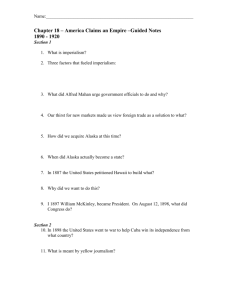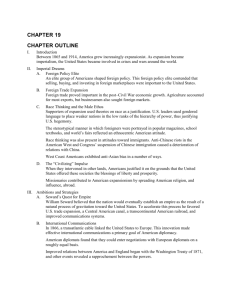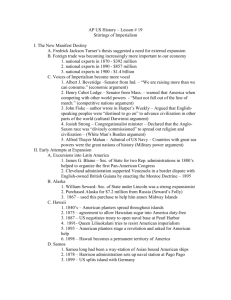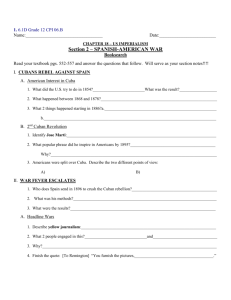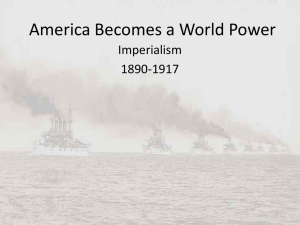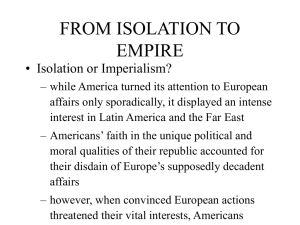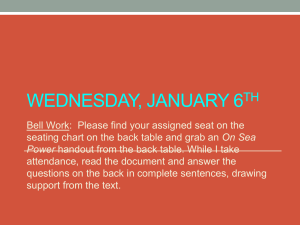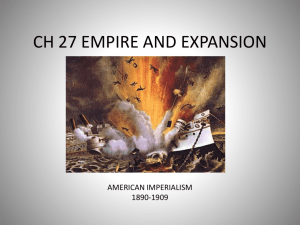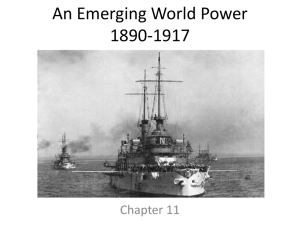American Imperialism- Becoming an Imperial Power
advertisement
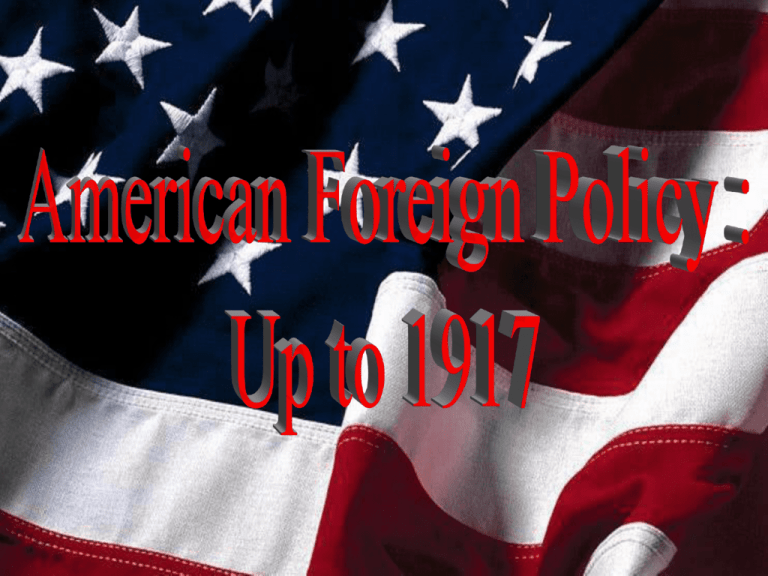
The View of the Two Political Parties • Republicans – Like Imperialism • Democrats – Not in favor of Imperialism 1. Westward Expansion 2. Commercial/Business Interests 3. Military/Strategic Interests 4. Social Darwinism – “The White Man’s Burden” 5. Religious/Missionary Interests 1875 – Reciprocity Treaty: duty free access for Hawaiian sugar 1890 – McKinley Tariff: no longer duty free sugar 1893 – American businessmen backed an uprising against Queen Liliuokalani and overthrew her government Hawaiian Queen Liliuokalani o Sanford Dole: proclaims the Republic of Hawaii in 1894 and asks the U.S. to annex the territory o Cleveland initially refuses o McKinley believes it is “Manifest Destiny” o Annexes HI in 1898 Hawaiian Annexation Ceremony, 1898 The “Splendid Little War” Causes: - Cuban desire for independence - Am. Business Interests - Yellow Journalism - American Jingoism - De Lôme Letter - Explosion of the U.S.S. Maine William Randolph Hearst Joseph Pulitzer War declared April 25, 1898 Fought in the Caribbean and in the Philippines Spain surrendered August 12 and signs Treaty of Paris (1898) Cuba Gains “Independence” U.S. gains control of Puerto Rico, Guam, and the Philippines Marked U.S. entry into world affairs Uncle Sam: One of the “Boys?” Cuban Independence? Teller (1898) and Platt (1903) Amendments 1. Cuba could not enter agreements with foreign nations that would risk their independence 2. The U.S. could intervene in Cuban affairs if necessary 3. Cuba must lease Guantanamo Bay to the U.S. 4. Cuba must not build up excessive debt Basically Cuba is a protectorate of the U.S. The American Anti-Imperialist League Founded in 1899. Mark Twain, Andrew Carnegie, and William Jennings Bryan among the leaders Campaigned against the annexation of the Philippines and other acts of imperialism The Filipinos expected independence Began to fight against the U.S. The Philippine-American War (1899-1902) Emilio Aguinaldo Leader of the Filipino uprising Over 200,000 Filipinos killed Ultimately unsuccessful for the Philippines Stereotypes of the Chinese Immigrant Chinese Exclusion Act, 1882 The Open Door Policy Secretary of State John Hay Give all nations equal access to trade in China. Guaranteed that China would NOT be taken over by any one foreign power. The Open Door Policy Commodore Matthew Perry Opens Up Japan: 1853 The Japanese View of Commodore Perry Treaty of Kanagawa: 1854 Gentleman’s Agreement: 1908 Agreement between Roosevelt and Japanese government Problems with segregation in schools and unlimited immigration in the U.S. Japanese agreed to deny passports to laborers entering the U.S. The U.S. government ordered San Francisco to end segregation of Asians in schools. • Bought by the U.S. in 1867 from Russia • Bought for $7.2 million • Thought to be “Seward’s Folly” – Until gold discovered in 1890 • 1904: An addition to the Monroe Doctrine • U.S. had the right to intervene in any W. Hemisphere country where events were “harmful” to the U.S. • Justified U.S. intervention in Latin America U. S. Interventions in Latin America: 1898-1920s Big Stick Diplomacy • “Speak softly and carry a big stick” • The U.S. became increasingly assertive and took on the role of world policeman • Great White Fleet (1907-1909) • Circumnavigated the globe to show American military power • Spanish-American War demonstrated a need for an AtlanticPacific connector • Advantages to building the canal: – Business saved $ when shipping goods – Travel time between coasts reduced – Allowed a military presence in Central America • The Problem: Colombia said NO • Solution: Support Panamanian independence • 1904 Hay-BunauVarilla Treaty: the U.S. received permanent rights to 10 miles of land for $10 million Construction Begins in 1904 •Building of the canal plagued with problems •Disease (yellow fever and malaria) •Landslides •Over 27,000 men died to build the 48 mile long canal •Opened August 15, 1914 Panama Canal • Taft becomes President in 1909 • President Taft’s economic policy for Latin America was “Substituting dollars for bullets” Taft’s “Dollar Diplomacy” Improve financial opportunities for American businesses. Use private capital to further U. S. interests overseas. Therefore, the U.S. should create stability and order abroad that would best promote America’s commercial interests. • Wilson becomes President in 1913 • Democrat in office with a different point of view of foreign affairs • Appointed William Jennings Bryan as his Secretary of State Wilson’s “Moral Diplomacy” The U. S. should be the conscience of the world. Spread democracy. Promote peace. Condemn colonialism.


